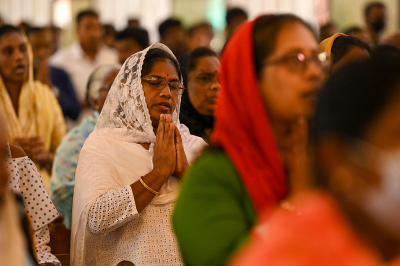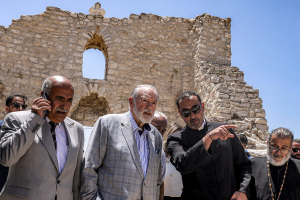5 interesting historical facts about Easter services
1. Where does the word Easter come from?

The origins of the word “Easter” have been the subject of much debate, with some arguing that Easter has pagan origins while others reject this as unfounded.
Speculation over possible pagan origins has led some churches, especially in the United States, to refer to the special day as “Resurrection Sunday” instead of Easter Sunday.
The Venerable Bede, a highly-respected Medieval historian, claimed in an eighth century work that the word “Easter” came from “Eostre,” the Anglo-Saxon goddess of spring and fertility.
However, according to Britannica, many scholars believe it was derived from the Latin phrase in albis, which is the plural of alba (‘dawn’) and that this became the Old High German term eostarum “precursor of the modern German and English term.”
Presbyterian theologian Alexander Hislop wrote in the 19th century book The Two Babylons that it was derived from the Babylonian goddess Astarte, influencing the Anglo-Saxon deity Eostre.
The apologetics group Answers in Genesis, which usually focuses on the Creation-evolution debate, critiqued the claims of Hislop and others who have been influenced by his book.
“Hislop’s logic becomes incomprehensible in places, and he made fundamental errors demonstrating his thinking to be false,” stated the apologetics group in a 2011 blog entry.
“For instance, he argued on a phonetic basis that Eostre from Saxony must be the same as Astarte, Ishtar, and Ashtoreth. This is a leap to consider their relationships based on the sound of the names alone.”





























